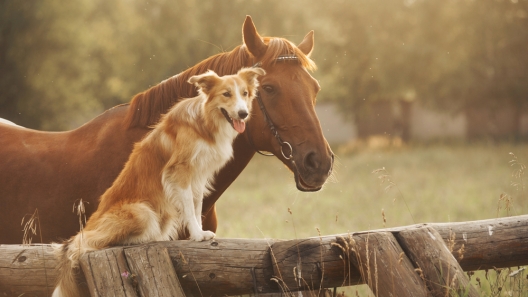-
Activity Level:
moderate
-
Shedding Level:
moderate
-
Grooming Level:
low
-
Trainability:
high
-
Good for Novice Owners:
moderate
-
Adaptability:
high
-
Kid/Pet Friendly:
often
-
Prey Drive:
high
-
Watchdog:
very alert
- Average Size: Small
- Average Lifespan: 13-15 years
- Registered?: aca, akc, other
Toy Fox Terrier Dog Breed Information
Overview
Temperament
Adaptability
Health
Owner Experience
Grooming
Activity Level
Size
Life Span
Did You Know?
Toy Fox Terriers are little powerhouses. Their athletic frames and high energy have allowed them to single-handedly clear vermin out of barns for decades. These dogs were often found on farms and granaries across America and pulled their own weight.
They also joined circus troupes and performed their little hearts out for crowds. Overall, the Toy Fox Terrier is a fine entertainer and a better companion. Although the Fox Terrier has had AKC recognition since 1885, the Toy Fox Terrier didn’t gain full recognition until 2003. Despite being a terrier, they are a member of the Toy Group.
These pups are happy-go-lucky attention hogs who are known for being affectionate with their families. Well-socialized, they get along well with children and other dogs in the family. However, they are small dogs who are even tinier as puppies. There are big responsibilities that come with owning little dogs.
They can be easily injured by accidental rough play or falls, which can be common with very young children. As such, they can be a better fit for families with older children who have mastered motor control and know how to properly interact with dogs. Regardless, any interactions between young kids and puppies should be supervised.
Toy Fox Terriers can also choose a favorite person, and can become territorial if not socialized from an early age. That territoriality comes in handy, if the owner needs a tiny watchdog. This also means these dogs can be prone to barking a lot, especially if they have been trained into it or encouraged to do it. Training your dog to stop barking early on and socializing them well can help keep this to alert barking and keep it from becoming a nuisance.
Well-socialized Toy Fox Terriers tend to be open and friendly with strangers, even if they bark at them initially. After all, they love attention, and once they know you are not a threat to their favorite people, you are another source of attention and affection for them. As terriers, these dogs have a high prey drive, which means an urge to chase. This can be a challenge with other smaller pets in the household.
Toy Fox Terriers (TFTs) are highly adaptable to most living situations. That being said, they tend to run laps and get loud, which can be a consideration for apartments. Provided noise won’t be an issue, they adapt well to apartments and thrive in homes with fenced yards where they can run.
They also do relatively well in most climates. As with all dogs, they are sensitive to heat. As a small dog with a short coat, they can also get cold easily. Gearing up with the right mix of winter dog products can help your Toy Fox Terrier stay warm while out on winter walks with you.
Toy Fox Terriers will live with just about anyone and be ecstatic about it. The more the merrier as far as they’re concerned because more people means more affection and attention. Toy Fox Terriers enjoy being the center of attention and wilt when they’re alone for too long. They can also be prone to developing separation anxiety if you do not socialize them well and work with them on it early on.
These pups are generally healthy overall. However, there are still some potential health concerns to be aware of. In Toy Fox Terriers, these can include hypothyroidism, primary lens luxation, patellar luxation, and von Willebrand’s disease. Good breeding practices and the health of the parents make a big difference in the health of Toy Fox Terrier puppies.
Reputable breeders will screen their dogs to make sure they are not passing preventable issues to puppies. Make sure you talk to the breeder about the health and genetic history of both parents. You can also ask about any health tests or clearances that have been done. The American Toy Fox Terrier Club recommends a DNA test for Primary Lens Luxation (PLL), a patella evaluation, and a thyroid evaluation.
This dog breed often has a short attention span. They are highly intelligent and pick up on things quickly, which also means they get bored quickly. Their creative takes on training can make it a more difficult process than for other dogs, as they will elaborate on commands for fun, especially if they get bored during a training session.
Start training right away to reduce their stubborn tendencies and employ plenty of consistency. Keep training sessions short and interesting, strike the right balance of consistency and repetition without being too repetitive, and continue to teach them new things to keep your dog engaged during training sessions.
Overall, Toy Fox Terriers can be a good fit for owners of all experience levels, but puppy training classes are usually recommended. Toy Fox Terriers tend to keep owners on their toes and do it with flair, and puppy training classes can ensure you’re prepared to handle curveballs. One of the facts about Fox Terriers is that they tend to chase everything, and the same is true for Toy Fox Terriers.
You will want to try to improve recall where you can and work on managing prey drive, knowing that they are likely to ignore it in favor of chasing something more interesting. As such, it’s recommended to only let these dogs off-leash in securely fenced areas.
Toy Fox Terriers have blissfully short coats, which makes grooming simple. Their hair, usually less than an inch in length, sheds frequently, but is seldom troublesome to manage. They undergo heavier seasonal shedding events that will need additional brushing. A shedding comb, a rubber brush, and a grooming glove are good types of dog grooming brushes to have on hand.
In addition to coat care, you will also need to take care of your Toy Fox Terrier’s nails, ears, and teeth. Nail trims once or twice a month are usually enough to keep nails from growing too long and causing issues. Weekly ear checks, and careful cleanings when needed, can help prevent ear infections.
As small dogs, TFTs are even more prone to developing dental diseases later in life, which only makes good doggie dental care early and consistently throughout their lives more important. Brushing teeth every day with a toothpaste for dogs or using an enzyme toothpaste made for dogs, in addition to cleanings at the vet when needed, is a good start.
These dogs are very active and will exhibit bursts of high energy when they play. But, because they’re so small, they also get tired out quickly. Daily walks plus some playtime are usually enough for these little dogs.
However, they will likely be up for more if you are, because they love spending time with you. You will need to keep an eye on them to make sure they are not overheating or overexerting themselves trying to keep up with you. Playing fetch from one end of the house to the other can be a good option; running outside in a fenced area is another good option.
Despite their small size, these dogs are quite athletic and tend to enjoy a variety of activities. Some TFTs even compete in competitive agility events at championship levels! Just make sure you keep things low-impact until Toy Fox Terrier puppies finish growing to avoid damage to developing bones and joints. After playing for a bit, Toy Fox Terriers will often love to settle down on the couch and cuddle with you for hours.
A fully-grown Toy Fox Terrier usually ranges from 8.5-11.5 inches tall and weighs 4-9 pounds. This makes them one of the smallest dog breeds.
Toy Fox Terriers generally live for 13-15 years on average.
The idea for the Toy Fox Terrier came from runts in litters of Smooth Fox Terriers. The breed was developed in the 1930s by crossing smaller-than-average Smooth Fox Terriers with Chihuahuas, Italian Greyhounds, Miniature Pinschers, and other toy dogs. They are sometimes called the Amertoy (American Toy).









